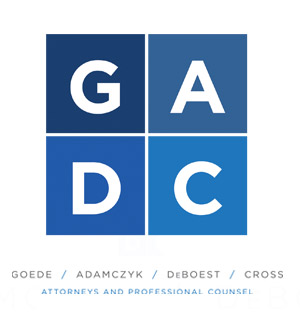Editor’s note: Attorneys at Goede, DeBoest & Cross respond to questions about Florida community association law. The firm represents community associations throughout Florida and focuses on condominium and homeowner association law, real estate law, civil litigation, estate planning and commercial transactions.
Q: I own two condo units as investment properties. The association recently made a bunch of new rules including that nobody is allowed to move in or out of the building for at least the next two months due to the coronavirus. They also closed the gym and pool until further notice and passed rules that prohibited delivery people and others from entering the building. One of my units is currently vacant, and I will not be able to rent it out if my tenant will not be allowed to move in. The tenant in my other unit is complaining that he doesn’t have access to the pool and gym. Can the association just make all these new rules because of the coronavirus?
L.D., Hollywood
A: Generally, regardless of the current coronavirus pandemic, the board of directors has the power to promulgate reasonable rules and regulations in connection with the condominium property if the association’s governing documents grant the board such power.
Your first step would be to look at the governing documents of your association. Although the vast majority of governing documents grant the board this rulemaking authority, some governing documents grant broad rule making authority to the board, while others may only grant authority to enact rules in certain areas, such as rules related to the use of the common areas. Also, some governing documents require an affirmative vote from the members to pass new rules. You may want to have a licensed Florida attorney analyze your association’s documents for you in order to be sure that the board is operating within its authority.
Assuming that your association’s documents dictate that the board has rulemaking authority, the next step will be to determine whether the rules that you specifically mentioned in your question are reasonable and do not contradict any other provision of the governing documents. Again, this will be specific to your governing documents, so understand that even if the governing documents broad rulemaking authority to the board, that does not mean they have carte blanche to make any rule they want.
That all being said, now that our Governor has declared a state of emergency throughout the State of Florida, Section 718.1265, Florida Statutes can be exercised by the board. This statute governs a condominium association’s emergency powers during an event for which a state of emergency is declared. Among other emergency powers authorized under the statute, subsection (1)(g) states, “Based upon advice of emergency management officials or upon the advice of licensed professionals retained by the board, determine any portion of the condominium property unavailable for entry or occupancy by unit owners, family members, tenants, guests, agents, or invitees to protect the health, safety, or welfare of such persons.”
Therefore, under normal circumstances, the board’s rules relating to prohibiting moving in and out, closing the pool and gym, and limiting access to the building by non-residents may be susceptible to a challenge as to their reasonableness; however, given the current coronavirus pandemic, the board is likely within their authority to pass the rules under the emergency powers statute, since these rules are all designed to protect the health, safety, and welfare of the community by limiting access to certain areas of the property. Please note that Section 718.1265(2) provides that the emergency powers “shall be limited to that time reasonably necessary to protect the health, safety, and welfare of the association and the unit owners and the unit owners’ family members, tenants, guests, agents, or invitees and shall be reasonably necessary to mitigate further damage and make emergency repairs.” Accordingly, once the time has come that these rules are no longer reasonably necessary, the board will have to once again allow full access to the condominium property.
Visit our Condo/HOA Blog for more of our Q&A articles.
Avi S. Tryson, Esq., is Partner of the Law Firm Goede, DeBoest & Cross. Visit www.gadclaw.com or to ask questions about your issues for future columns, send your inquiry to: question@gadclaw.com. The information provided herein is for informational purposes only and should not be construed as legal advice. The publication of this article does not create an attorney-client relationship between the reader and Goede, DeBoest & Cross, or any of our attorneys. Readers should not act or refrain from acting based upon the information contained in this article without first contacting an attorney, if you have questions about any of the issues raised herein. The hiring of an attorney is a decision that should not be based solely on advertisements or this column.

